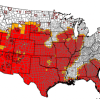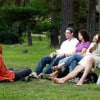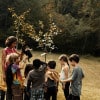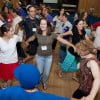Join us for the whole weekend, just for shabbat, for a one-day ride, as a rider, or as crew.


Join us for the whole weekend, just for shabbat, for a one-day ride, as a rider, or as crew.

Enjoy an off-duty Shabbat and spend Sunday and Monday running themed rest stops for riders.

We’re spotlighting a few of this year’s mini-grant recipients from the 2012 Hazon New York Ride.

We’re excited to announce a small taste of opportunities at this year’s Hazon New York Ride Shabbat retreat

What’s all this talk about the drought? And why are the size of storms increasing?

Thank you to everyone who joined us for Hazon Happy Hour last week at the Crooked Knife!

We’re spotlighting a few of this year’s mini-grant recipients from the 2012 Hazon New York Ride.

The programming for this year’s New York Ride Shabbat Retreat is better than ever.

Join Hazon for Happy Hour at The Crooked Knife!

Summer is here, which is the perfect time to get outside and start biking! Check here for all the latest cycling news!

Hazon is excited to be supporting the following organizations in their efforts to create healthier and more sustainable communities in the Jewish world and beyond!

Check out some fundraising letters from some of the members of the New York Ride Planning Committee.

We invite you to join the Altshul community on July 14 for Shabbat services and reconnect friends from the Hazon New York Ride! Come enjoy a delicious, healthy and sustainable kiddush after services, sponsored by Hazon. (more…)

Check out photos from Bike to the Beach!

Every year, parent/child combos participate in Hazon Rides and have a great time.
